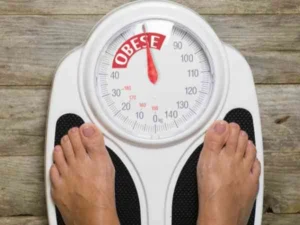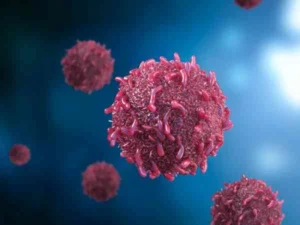Get the Pregnancy Diet Plan That Will Keep You and Your Baby Healthy!
A pregnancy diet is a diet plan designed specifically for pregnant women. A pregnant woman’s nutritional requirements change throughout her pregnancy. She may need to increase caloric intake and decrease certain foods. This type of diet is recommended for those who are pregnant since their body is changing and they require extra calories.
The maternal diet is the food consumed by the mother before, during, and after pregnancy. The maternal diet should consist of nutritious foods that provide the necessary vitamins, minerals, and nutrients for the mother and baby. These foods include fruits, vegetables, whole grains, lean meats, low-fat dairy products, and fish.

What Does Pregnancy Diet Means?
A pregnant woman’s diet should consist of foods rich in protein, iron, zinc, vitamin B12, folic acid, fiber, omega-3 fatty acids, and calcium. These are some of the vitamins and minerals necessary for a developing fetus. Since the mother’s body is undergoing a lot of changes, she may need to eat special food products throughout her pregnancy. A pregnant woman’s diet should be varied, balanced, and nutritious. She should avoid eating junk food and fast food since they are not good for her and her baby.
Pregnancy Nutrition Tips

When preparing meals for the mother-to-be, make sure to choose foods that have no trans fats, saturated fats, high cholesterol, or added sugar. Choose lean meats instead of fatty ones, whole grains instead of refined ones, fruits instead of sweets, low-fat dairy instead of full-fat ones, and plenty of vegetables. Here are some tips for what types of food you should eat while pregnant:
- Whole grains– Eat at least three servings per day.
- Fruits– Go for fresh fruit over frozen ones.
- Lean meat– Choose lean cuts of beef and pork.
- Dairy– Avoid full-fat milk, cheese, yogurt, ice cream, butter, and sour cream. Instead, opt for low-fat options.
- Vegetables– Include a variety of dark leafy greens, beans, broccoli, carrots, cauliflower, tomatoes, onions, garlic, mushrooms, peppers, cabbage, zucchini, potatoes, sweet potatoes, peas, corn, and spinach.
Foods You Should Avoid While Pregnant

Avoiding these foods will help you avoid problems likegestational diabetes, hypertension, preeclampsia, and heart disease. Foods to avoid while pregnant include:
- Fried foods– Deep-fried foods may cause excessive amounts of oil to enter the bloodstream.
- High-cholesterol foods– Eating foods high in cholesterol may increase the risk of blood clots.
- Refined carbs– Refined carbs such as white bread, pasta, rice, and cereals are often lacking in fiber. Fiber helps reduce constipation and prevent hemorrhoids.
The Indian Pregnancy Diet Plan For You And Your Baby

Pregnancy is a time of great joy for many women. You’ve just become a mother! But before you get caught up in the excitement of being pregnant, make sure you take some time to think about what kind of lifestyle changes you need to make to ensure a safe pregnancy. If you have any medical conditions, you may want to speak to your doctor first. Make sure youeat right, stay active, and avoid alcohol and cigarettesif possible. Here are some tips for making your pregnancy safer and healthier.
- Eat Plenty of Protein:Your body needs protein to build muscles and bones. A good way to meet your daily protein requirements is to eat lean meats, fish, poultry, beans, eggs, dairy products, and nuts. Nuts and seeds are excellent sources of protein, and they are high in fat, which helps keep your blood sugar levels steady throughout the day. Just not that much as access to anything is dangerous
- Add Fiber to Your Diet: Fiber keeps your digestive system working properly. Eating plenty of fiber-rich foods, such as fruits and vegetables, whole grains, legumes, and nuts, can help lower cholesterol and reduce your risk of heart disease. In addition, fiber aids digestion removes toxins from the body, and promotes regular bowel movements.
- Get Enough Sleep: During pregnancy, adequate sleep is especially important. Getting at least seven hours of restful sleep each night can improve your mood and boost your energy level. Avoid caffeine after noon, and limit your intake of alcoholic beverages.
- Reduce Stress Levels: Stress can cause headaches, backaches, upset stomach, and even premature labor. Exercise regularly and talk to friends and family members who care about you. Keep yourself busy and don’t worry about things over which you have no control.
- Stay Hydrated:Drinking enough water can prevent constipation, hemorrhoids, andvaricose veins. Water helps flush wastes from the body, and drinking enough water can help you lose weight. Drink only 8 glasses of water.
- Don’t Smoke Cigarettes:Smoking cigarettes while pregnant increases your chances of miscarriage, stillbirth, low birth weight, preterm labor, and sudden infant death syndrome (SIDS). Smoking also increases your risk of developing preeclampsia, gestational diabetes, and postpartum depression. If you smoke, quit immediately.
What All Food You Should Not Include In Your Pregnancy Diet Plan?

- Coffee:Coffee is known to cause miscarriage, birth defects, premature labor, and low birth weight babies. In addition, caffeine is harmful to pregnant women’s kidneys. Avoiding coffee is advised during pregnancy.
- Alcohol:Alcohol consumption is not recommended during pregnancy. A small amount of alcohol may be tolerated if the mother is under medication or suffering from morning sickness. However, consuming any amount of alcohol poses serious risks to the developing baby.
- Tobacco:Tobacco is dangerous for both mother and child. Smoking increases the risk of miscarriage, stillbirth, preterm delivery, and low birth weight infants.
- Sugar:Sugar is detrimental to the fetus. Pregnant mothers should limit their intake of sugar due to its effects on blood pressure and kidney function.
- Salt:Salt is harmful to the body. It causes water retention and high blood pressure. High salt intake can lead to heart disease, stroke, diabetes, and obesity.
- Processed meat:Processed meats have been linked to cancer, heart disease, and early death. These meats contain carcinogens and nitrites. They should be avoided.
- Fried food:Fried foods are high in saturated fats and cholesterol, which increase the chances of heart attacks and strokes.
Various Myths About Pregnancy Diet That You Should/Shouldn’t Care About
Myth 1:You should not eat anything while pregnant.
Fact:Eating food does not harm the baby. However, eating too much junk food may cause weight gain and obesity. So, it’s best to keep yourself healthy and fit throughout pregnancy.
Myth 2:Eat only vegetables and fruits.
Fact: There is no need to restrict yourself to any particular type of food. You can have meat and fish if you want to. Just make sure that you do not over-indulge in them.
Myth 3:Drink lots of water.
Fact: Drinking plenty of water is good for both mother and child. However, drinking too much water can lead to dehydration and constipation. So, drink enough to stay well-hydrated but don’t go overboard.
Myth 4:Avoid alcohol during pregnancy.
Fact:Moderate intake of alcohol (less than three drinks per week) is safe for both mother and child and helps reduce nausea and vomiting associated with morning sickness. Alcohol may also help prevent premature labor and birth. But drinking way too much alcohol will obviously affect your and your baby’s health.
Myth 5:Do not smoke cigarettes during pregnancy.
Fact:Smoking during pregnancy poses several risks to the fetus including low birth weight, preterm delivery, stillbirth, miscarriage, and sudden infant death syndrome. If you really do not want to give up smoking, then try using nicotine gum, patches, inhalers, or e-cigarettes.
Myth 6:Take multivitamins during pregnancy.
Fact:Taking multivitamin supplements during pregnancy is a bad idea. It might interfere with the absorption of iron and folate. These two vitamins are critical for fetal brain development.
Myth 7:Do not eat fatty foods while pregnant.
Fact:Fatty foods are rich in calories, which is necessary for proper fetal development. You should avoid high-calorie foods such as fried foods, sweets, and fast food. Instead, eat lean protein and fresh fruit and vegetables to get all the nutrition you need.
The Final Outlook On Pregnancy Diet,
The outlook of pregnancy diet for pregnant women is a good thing for them since they have to eat nutritious food to ensure the well-being of their baby. As a mother, you need to take care of yourself first before taking care of others. You should know that you cannot afford to neglect your nutrition even if you are not feeling sick with nausea. As long as you feel fine, then you do not have to worry about eating healthily.
But, whenever you feel sick and notice any changes in your body weight or appetite, you will definitely have to pay attention to what you eat. In general, you need to eat 5 times a day at least. Also, you need to eat foods rich in vitamins and proteins just like meat, fish, eggs, milk, cheese, beans, vegetables, fruits, nuts, cereal, bread, etc. Avoid eating oily foods like chips, fast-food meals, junk food, sugary drinks, and alcohol.







